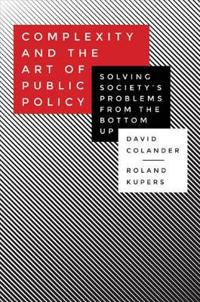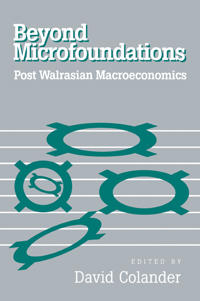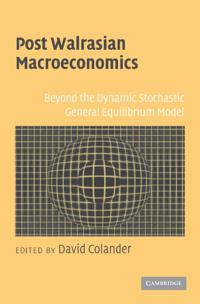Complexity and the Art of Public Policy (Inbunden)
avDavid Colander, Roland Kupers, David Colander
ISBN: 9780691152097 - UTGIVEN: 2014-05Complexity science--made possible by modern analytical and computational advances--is changing the way we think about social systems and social theory. Unfortunately, economists' policy models have not kept up and are stuck in either a market fundamentalist or government control narrative. While the[...]
Making of an Economist, Redux, The (Övrig)
avDavid Colander
ISBN: 9780691138510 - UTGIVEN: 2008-11-17Economists seem to be everywhere in the media these days. But what exactly do today's economists do? What and how are they taught? Updating David Colander and Arjo Klamer's classic "The Making of an Economist", this book shows what is happening in elite U.S. economics Ph.D. programs. By examining th[...]
The Indo-European Languages (Storpocket)
avDavid C. Colander
ISBN: 9780415412636 - UTGIVEN: 2006-11The Indo-European languages are a family of several hundred languages and dialects including most of the major languages of Europe as well as many in West, Central and Southern Asia. Indo-European is the largest family of languages in the world today, with its languages being spoken by approximately[...]
Beyond Microfoundations (Pocket)
avDavid (EDT) Colander
ISBN: 9780521034586 - UTGIVEN: 2006-12Beyond Microfoundations discusses the foundations for a post-Walrasian macroeconomics and, in doing so, carries the work of Robert Clower and Axel Leijonhufvud to the present. This book spells out both why an alternative approach to macro is needed, and what the essence of the approach will be. This[...]
Post Walrasian Macroeconomics (Pocket)
avDavid (EDT) Colander
ISBN: 9780521684200 - UTGIVEN: 2006-07Macroeconomics is evolving in an almost dialectic fashion. The latest evolution is the development of a new synthesis that combines insights of new classical, new Keynesian and real business cycle traditions into a dynamic, stochastic general equilibrium (DSGE) model that serves as a foundation for [...]
The Lost Art of Economics (Häftad)
avDavid C. Colander
ISBN: 9781843764892 - UTGIVEN: 2003-05Economics is the study of a complex system in which simple laws are not always forthcoming. That complexity mandates three branches of the profession: positive, normative and the art of economics. The economics profession has focused on one of these - positive economics, and in doing so has lost the[...]








